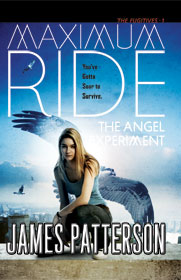Writing with an authentic voice is a difficult thing to learn, but lately I’ve been honing in on writers who do it well in an attempt to understand what makes a good voice. The writer I’ve been spending a lot of time with lately (through his books, not in person) is Scott Westerfeld. His books are compelling not just because of his ability to emerse the reader in a wonderfully built world, but also because of his amazing use of voice (which contributes to the world building, but more on that later).
Voice in the Uglies series
In the Uglies series, the main character, Tally, goes through a series of transformations. In each book, the reader can feel these transformations because of Westerfeld’s use of voice. Although told in third person, Westerfeld uses words and thoughts that Tally would use/have. He utilizes slang from his world (e.g. “bubbly” and “icy”) but also gets into the heart of the story. And because the voice is so authentic, he seemlessly transports the reader into Tally’s world. His use of voice wraps around the world, snuggling the reader inside; it is completely devoid of influences from our own world which keeps the illusion from being shattered.
Not only does his use of voice help to make the world real, but he also does a great job portraying many of the things that teenagers and adults alike face – wanting to fit in, insecurities about one’s appearance, never being good enough, etc. While he does this through the plot, these internal struggles would not be nearly as successful without the addition of a believable voice.
Voice in the Leviathan series
The other series of Westerfeld’s I’ve been reading is the Leviathan series. In this series, Westerfeld switches POV between Alek, the properly raised aristocrat fleeing for his life, and Deryn, the spunky Englander pretending to be a boy so she can be an airman. Again told in third person, Westerfeld switches the voice between the chapters. The reader can tell without thinking which POV belongs to which chapter. As with the Uglies series, Westerfeld is successful not just because of word choice and his addition of slang, but he brings out the thoughts and internal struggles of each main character in a believable way.
Other examples of good use of voice
If you are looking for other good examples of voice, Suzanne Collins’ the Hunger Games series uses great voice and is told in first person. In Ally Condie’s Matched, as in the Ugly series, the voice changes as the main character evolves. M.T. Anderson’s Feed, like Westerfeld’s books, incorporates rich dialog into the narration to aid the voice. Another book I recently read is Megan McCafferty’s Bumped, which, like the Leviathan series, uses two POVs. It’s not done to the same degree as what Westerfeld has done, but it’s still a good example of using two narrators within one book.
Do you have any other examples of authors/books that make good use of voice? What other skills can we learn from reading works by other authors?




